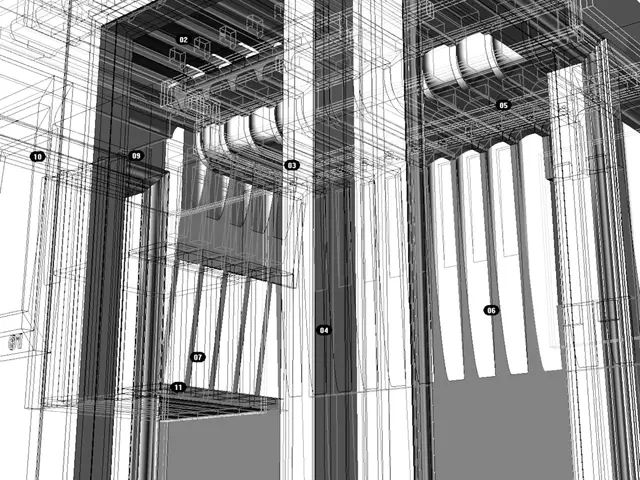Germany Urged to Take Greater EU Role as Economic Power
Germany, the EU's dominant economic power, has long prioritized free trade and low tariffs, while safeguarding its automotive industry. Its cautious approach has earned trust, but partners now urge it to take on more responsibility given its size.
Germany's economic policy revolves around free trade agreements and low tariffs. It opposes dumping competition and protects its automotive industry. This policy is driven by its status as a major economic power in the EU.
Geographically, Germany's central location within the EU allows it to play a pivotal role. Its reunification in 1990 was marked by a commitment to further European integration. The principle of 'self-binding' has guided its European policy, involving the voluntary surrender of national competencies for European solutions.
Germany's influence extends to its representation in EU negotiations. All 16 federal states participate alongside the federal government, with each often sitting at the negotiation table. Germany's large population also serves as a bargaining tool in the Council of Ministers.
Germany prefers diplomatic and economic means over military interventions, asserting its interests as a civilian power. It is particularly active politically towards Eastern Europe, notably in negotiating the Minsk Agreement and pushing for EU sanctions against Russia.
Its large population also translates to the most seats in the European Parliament, often giving it the largest group in the factions.
Germany's cautious economic policy and central role in the EU have earned it trust among partners. However, with its size and influence, it is now expected to take on more responsibility. Its diplomatic and economic approach, particularly in Eastern Europe, reflects its status as a civilian power.
Read also:
- American teenagers taking up farming roles previously filled by immigrants, a concept revisited from 1965's labor market shift.
- Weekly affairs in the German Federal Parliament (Bundestag)
- Landslide claims seven lives, injures six individuals while they work to restore a water channel in the northern region of Pakistan
- Escalating conflict in Sudan has prompted the United Nations to announce a critical gender crisis, highlighting the disproportionate impact of the ongoing violence on women and girls.








